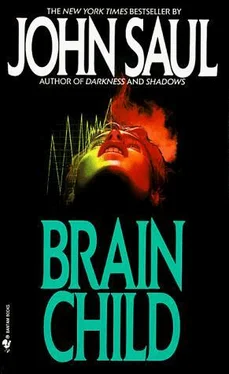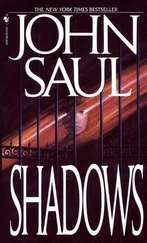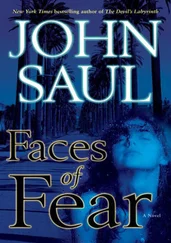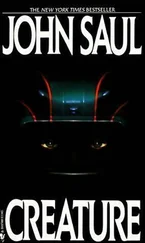John Saul - Brain Child
Здесь есть возможность читать онлайн «John Saul - Brain Child» весь текст электронной книги совершенно бесплатно (целиком полную версию без сокращений). В некоторых случаях можно слушать аудио, скачать через торрент в формате fb2 и присутствует краткое содержание. Год выпуска: 1985, ISBN: 1985, Издательство: Random House, Inc., Жанр: Ужасы и Мистика, на английском языке. Описание произведения, (предисловие) а так же отзывы посетителей доступны на портале библиотеки ЛибКат.
- Название:Brain Child
- Автор:
- Издательство:Random House, Inc.
- Жанр:
- Год:1985
- ISBN:978-0-30776793-6
- Рейтинг книги:5 / 5. Голосов: 1
-
Избранное:Добавить в избранное
- Отзывы:
-
Ваша оценка:
- 100
- 1
- 2
- 3
- 4
- 5
Brain Child: краткое содержание, описание и аннотация
Предлагаем к чтению аннотацию, описание, краткое содержание или предисловие (зависит от того, что написал сам автор книги «Brain Child»). Если вы не нашли необходимую информацию о книге — напишите в комментариях, мы постараемся отыскать её.
Brain Child — читать онлайн бесплатно полную книгу (весь текст) целиком
Ниже представлен текст книги, разбитый по страницам. Система сохранения места последней прочитанной страницы, позволяет с удобством читать онлайн бесплатно книгу «Brain Child», без необходимости каждый раз заново искать на чём Вы остановились. Поставьте закладку, и сможете в любой момент перейти на страницу, на которой закончили чтение.
Интервал:
Закладка:
When he was alone, Frank Mallory picked up the phone and dialed the number of Raymond Torres’s office in Palo Alto, twenty miles away. After talking to him for thirty minutes, he finally convinced Torres to see Marsh Lonsdale and look at Alex’s case.
The doctor made no promises, but he agreed to talk, and to look.
Privately, Frank half-hoped Torres would turn Marsh down.
CHAPTER FIVE
Exhaustion was overtaking Marsh, and he was beginning to feel that the situation was hopeless. He’d been in Raymond Torres’s offices for most of the day, and for most of the day he’d been by himself. Not that it hadn’t been interesting; it had, despite the overriding fear for his son’s life that had never left his consciousness since the moment he had arrived that morning.
He’d stared at the Institute through bleary eyes. The building itself was a bastard — it had obviously started out as a home, and an imposing one. But from the central core of the mansion — for a mansion it had been — two wings had spread, and no attempt had been made to make them architecturally compatible with the original structure. Instead, they were sleekly functional, in stark contrast with the Georgian massiveness of the core. The buildings were surrounded by a sprawling lawn dotted with trees, and only a neat brass plaque mounted on the face of a large rock near the street identified the structure: INSTITUTE FOR THE HUMAN BRAIN.
Inside, a receptionist had led him immediately to Raymond Torres’s office, where he’d turned all of Alex’s records over to the surgeon himself, who, without so much as glancing at them, had given them to an assistant. When the assistant had disappeared, Torres had offered him a chair, then spent what Marsh thought was an unnecessarily long time lighting his pipe.
It took Marsh only a few seconds to decide that there was nothing of Torres’s scientific reputation in either his manner or his bearing. He was tall, and his chiseled features were carefully framed by prematurely graying hair in a manner that seemed to Marsh more suitable for a movie star than a scientist. The star image was further enhanced by the perfectly cut tan silk suit Torres wore, and the cool casualness of his posture. For all his fine credentials, the first impression Raymond Torres gave his visitor was that of a society doctor more interested in the practice of golf than in the practice of medicine.
Nor was Marsh’s instinctive dislike of the man alleviated by the fact that once the pipe was lit, the meeting had lasted only long enough for Torres to tell him that there would be no decision made until his staff had been able to analyze Alex’s case, and that the analysis would take most of the day.
“I’ll wait,” Marsh had said. From behind his desk, Raymond Torres had shrugged with apparent disinterest. “As you wish, but I could just as easily call you when I’ve come to a decision.”
Marsh had shaken his head. “No. I have to be here. Alex is my only child. There’s … well, there’s just nowhere else for me to go.”
Torres had risen from his chair in a manner that Marsh found almost offensively dismissive. “As I said, as you wish. But you’ll have to excuse me — I have a great deal to do this morning.”
Marsh had stared at the man in stunned disbelief. “You’re not even interested in hearing about the case?”
“It’s all in the records, isn’t it?” Torres had countered.
“Alex isn’t in the records, Dr. Torres,” Marsh had replied, his voice trembling with the effort to control his anger. Torres seemed to consider his words for a moment, but didn’t reseat himself, and when he finally replied, his voice was cool.
“I’m a research man, Dr. Lonsdale. I’m a research man because, as I discovered long ago, I don’t have much of a bedside manner. There are those, I know, who don’t think I relate to people very well. Frankly, I don’t care. I’m interested in helping people, not in coddling them. And I don’t have to know the details of your son’s life in order to help him. I don’t care who he is, or what he’s like, or what the details of his accident were. All I care about are the details of his injuries, so that I can make a reasonable judgment about whether or not I can help him. In other words, everything I need to know about your boy should be in his records. If there is anything missing, I — or someone on my staff — will know, and do whatever has to be done to rectify the matter. If you want to spend the rest of the day here, just in case we need you, I have no objection. Frankly, I doubt we’ll need you. If we need anybody, it will be the patient’s attending physician.”
“Frank Mallory.”
“Whoever.” Torres shrugged disinterestedly. “But feel free to stay. We have a comfortable lounge, and you’ll certainly find plenty to read.” Suddenly he smiled. “All of it, of course, having to do with our work. One thing I insist on is that the lounge be well stocked with every article and monograph I’ve ever written.”
Offended as he was by the man’s open pride in himself, Marsh managed to keep silent, for without Torres, he knew there was no hope for Alex at all. And by two o’clock that afternoon he’d become totally convinced that whatever Raymond Torres lacked in personal warmth, he more than made up for in professional expertise.
The articles he’d read — and he’d read at least thirty of them, forcing himself to maintain his concentration through the interminable hours — covered a wide field of interest. Torres had not only made himself an expert on the structure of the brain, but he had also become a leading theorist on the functioning of the brain as well. In dozens of articles, Torres had described cases in which he’d found methods with which to circumvent damaged areas of a brain, and utilize other, healthy areas to take over the functions of the traumatized tissue. And through it all ran one constant theme — that the mysteries of the human brain were, indeed, solvable, but that the potentialities of the brain were only just being discovered. Indeed, he’d summed it up in a few sentences that had particularly intrigued Marsh:
The backup systems of the brain appear to me to be almost limitless. Long ago, we discovered that if a portion of the brain fails, another portion of the same brain can sometimes take over the function of the failed portion. It is almost as if each area of the brain not only knows what every other area does, but can perform that work itself if it really has to. The problem, then, seems to be one of convincing a damaged brain not to give up, and, further, of making it aware of its own problems so that it may redistribute its work load among its healthy components.
Marsh had read and reread that article several times when the receptionist suddenly appeared, smiling warmly at him.
“Dr. Lonsdale? Dr. Torres will see you now.” He put the journal aside and followed the neat young woman back to Torres’s office. Nodding a greeting, Torres beckoned him to a chair near his desk. In another chair, already seated, was Frank Mallory.
“Frank? What are you doing here?”
“I asked him to come,” Torres replied. “There are some things I have to review with him.”
“But Alex—”
“He’s stable, Marsh,” Frank told him. “There haven’t been any changes in his condition for several hours. Benny’s there, and a nurse is always in the room.”
“If we may proceed,” Torres interrupted. He turned toward a television screen on a table next to his desk. The screen displayed a high-resolution photograph of a human brain.
“It’s not what you think it is,” Torres said. Startled, both Marsh Lonsdale and Frank Mallory glanced toward Torres.
“I beg your pardon?” Frank asked.
Читать дальшеИнтервал:
Закладка:
Похожие книги на «Brain Child»
Представляем Вашему вниманию похожие книги на «Brain Child» списком для выбора. Мы отобрали схожую по названию и смыслу литературу в надежде предоставить читателям больше вариантов отыскать новые, интересные, ещё непрочитанные произведения.
Обсуждение, отзывы о книге «Brain Child» и просто собственные мнения читателей. Оставьте ваши комментарии, напишите, что Вы думаете о произведении, его смысле или главных героях. Укажите что конкретно понравилось, а что нет, и почему Вы так считаете.












